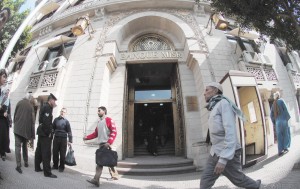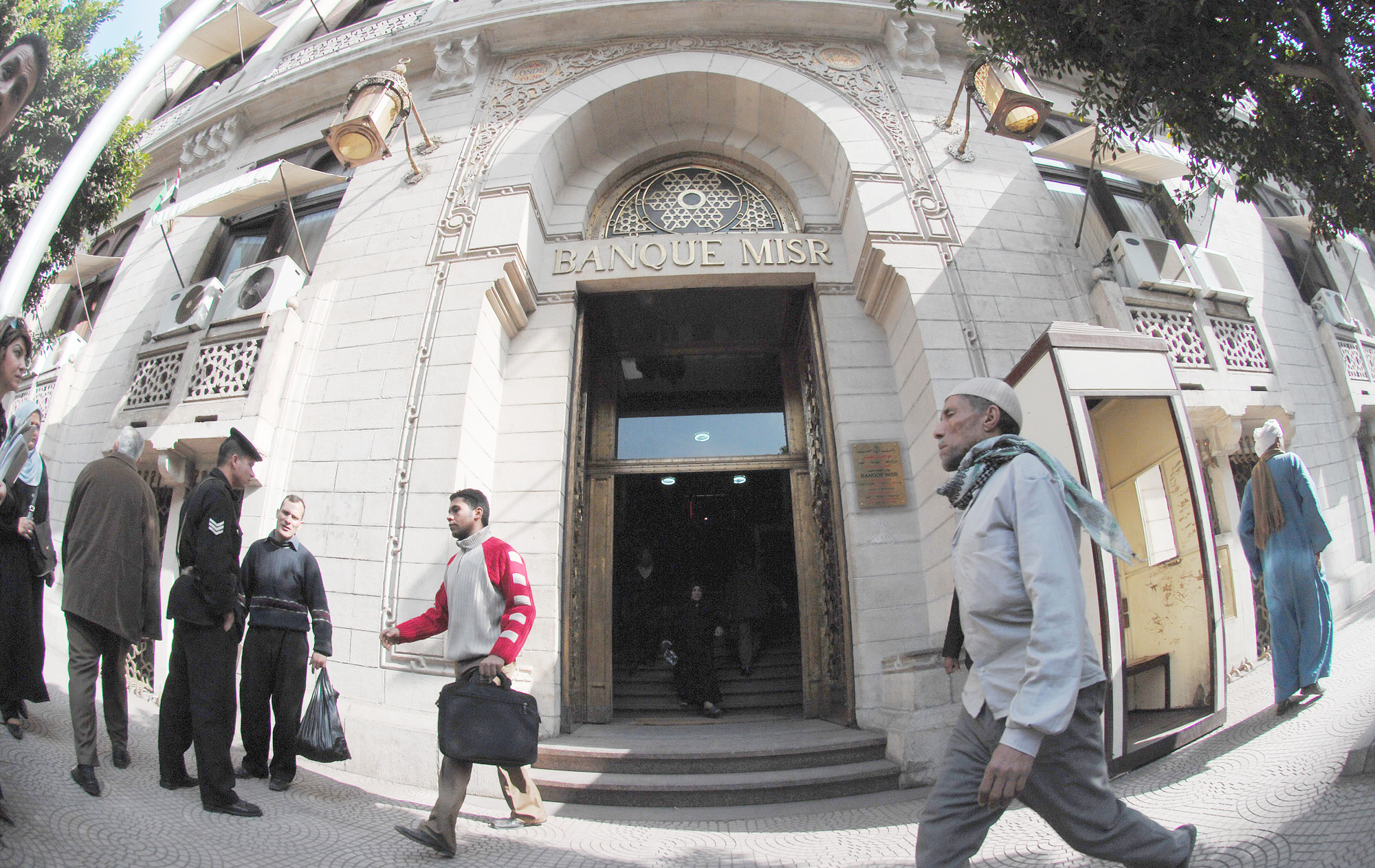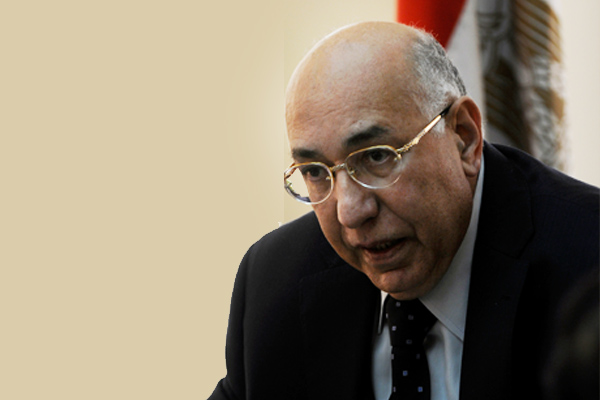
(DNE Photo)
By Nasser Yousseff
Despite the recent ouster of Egypt’s first elected president, Mohamed Morsi, banking sector officials have expressed optimism in the country’s future.
Recent improvements seen in the stock market and decreases in the cost of insuring government debt have reflected positively on the feelings of those working and operating within the sector, who recently decided to decrease return rates on Treasury bonds by 1%. It is expected that the economic improvement will continue despite the bloody events of the last two weeks seen throughout the country, in particular the clashes involving pro-Morsi protesters outside the Republican Guard headquarters.
Hisham Akasha, vice Chairman of the National Bank of Egypt, stated that recent improvements in a number of the country’s economic indicators, in addition to the increase seen in the value of the stock market, were not temporary, but rather reflected the optimism felt by many investors regarding the army’s recent re-entry into politics and the nomination of a new president. He added that many experts and leaders are aware of what must to be done to improve the current economic situation, a fact which will help contribute to the continued improvement of Egypt’s economic indicators.
Akasha denied that subsequent acts of violence would have a negative effect on the economy, pointing out that there have existed throughout history many countries who have gone through similar circumstances however still possessed strong economies on the world stage. He emphasized the need to deal with such events despite the fact that they were accidental, looking towards the future for stability and the revival of the country’s economy.
He acknowledged that Egypt’s economy did in fact suffer from a number of negative indicators during previous periods, including a series of credit rating downgrades, the result of political polarisation seen throughout the country and a lack of stability.
Abdul Al-MagidMahya Al-Din expressed his optimism regarding the state of Egypt’s markets following Morsi’s ouster, saying he expected the events of 30 June would help stabilize the country and spur rapid economic growth, after suffering over a year of negative indicators and political instability.
He added that the general state of optimism which has come to characterisethe economy will allow many of the country’s economic sectors to begin performing their functions more efficiently, which in turn will lead to further increases in foreign investment.
Al-Din acknowledged that Egypt is still suffering from economic problems, persistent lapses in security and political polarisation, adding however that the formation of the new government, in addition to the announcement of the country’s most recent constitutional declaration, will help stabilise the country and increase foreign confidence in its economy. He further recognized the need to pursue reconciliation with all of the country’s various political parties and factions.
Hossam Nasser, a banking expert and previous chairman of the Industrial Development and Worker’s Bank of Egypt, stated that he feared that the events surrounding the Republican Guard headquarters clashes, and the renewed intervention of the army in political life, would work to chip away at the sense of optimism felt by many regarding the country’s future.
The country’s current transitional period may in fact be the most difficult faced by Egypt since the initial outbreak of the January25thRevolution, Nasser said, adding that he hoped the country’s political and economic trajectory could be further clarified in the coming months, acknowledging that the country still faces severe economic challenges.
Nasser said that the country’s economic problems would not be easily solved, saying that strict efforts needed to be exerted in order overcome the obstacles facing the economy, including a lack of tourism and direct foreign investment, which were largely the result of a continued lack of security seen throughout the country.
An official within Banque Misr meanwhile said that one could not deny the strong sense of optimism felt by a number of foreign investors, particular those operating from within the Gulf market, saying that such investors would play a large role in the coming months in helping Egypt to recover from its economic recession.
The official further went on to say that since the removal of the Muslim Brotherhood from power, a number of businessmen have expressed their readiness to begin pumping billions of pounds into the country through a number of new development projects. He added however that it would first be necessary to provide such investors with a positive environment in which to conduct their business.
Translated from Al-Borsa


